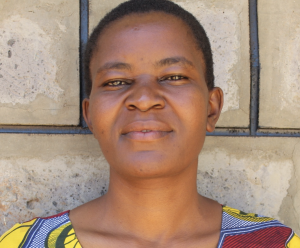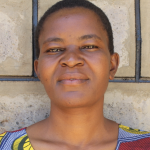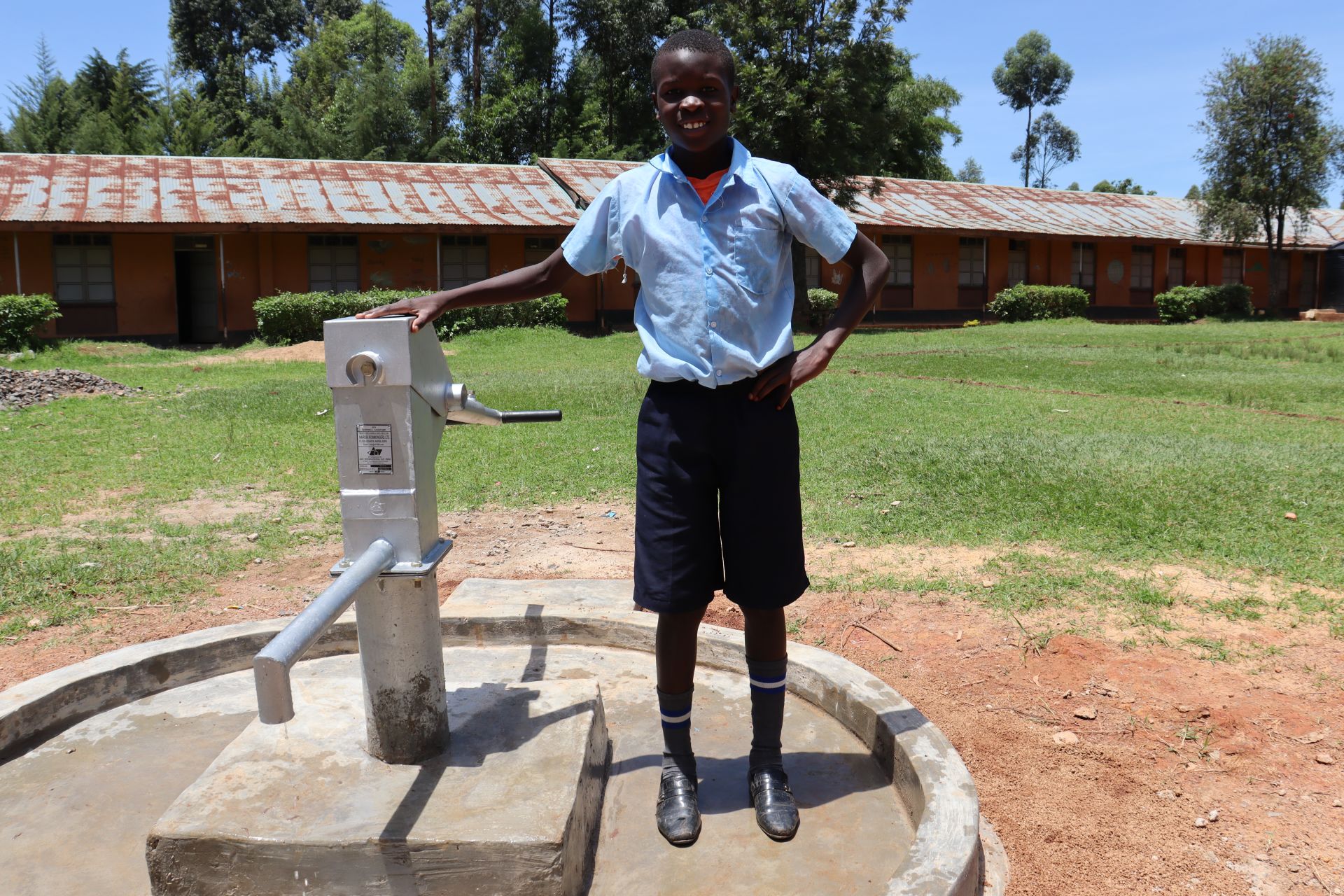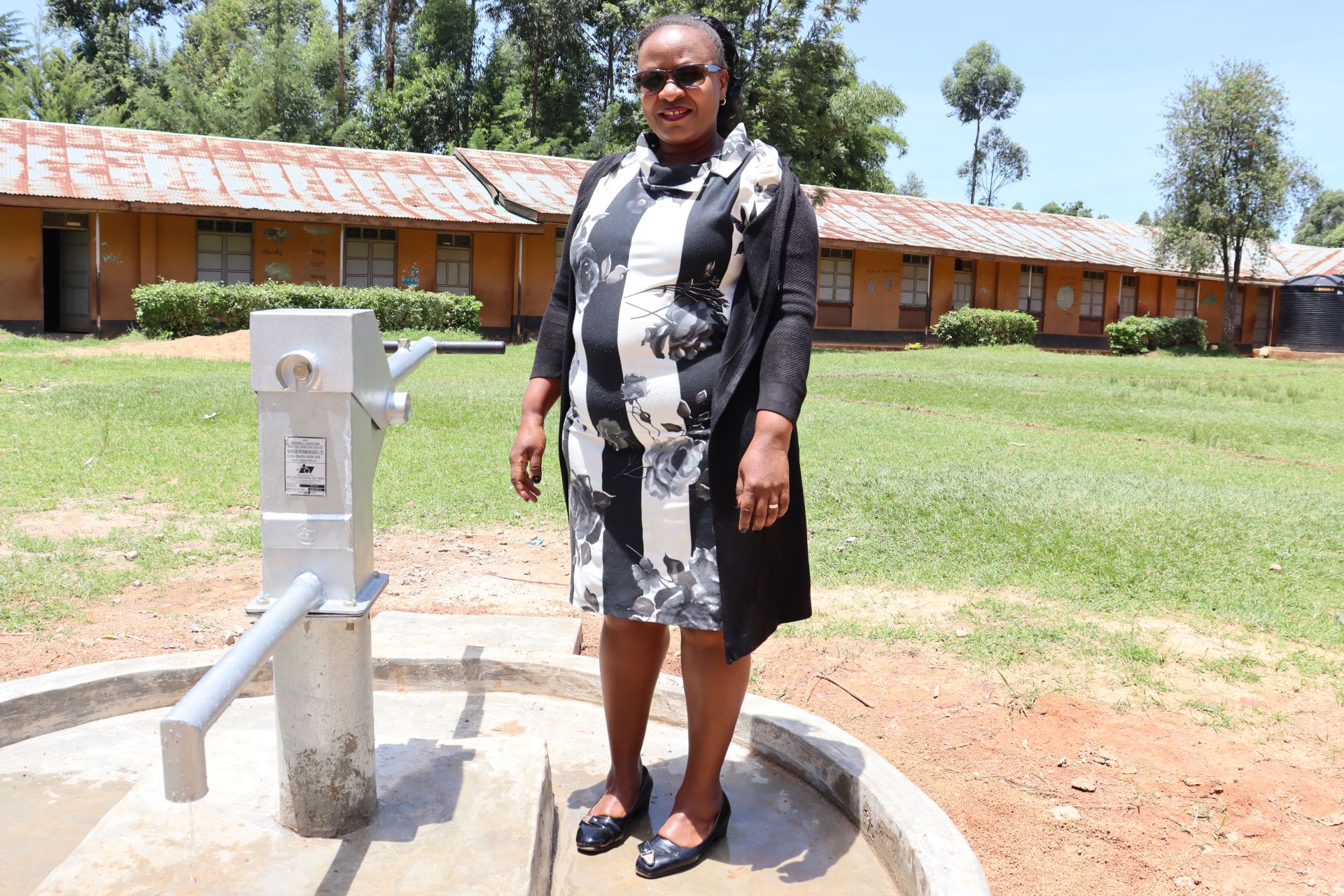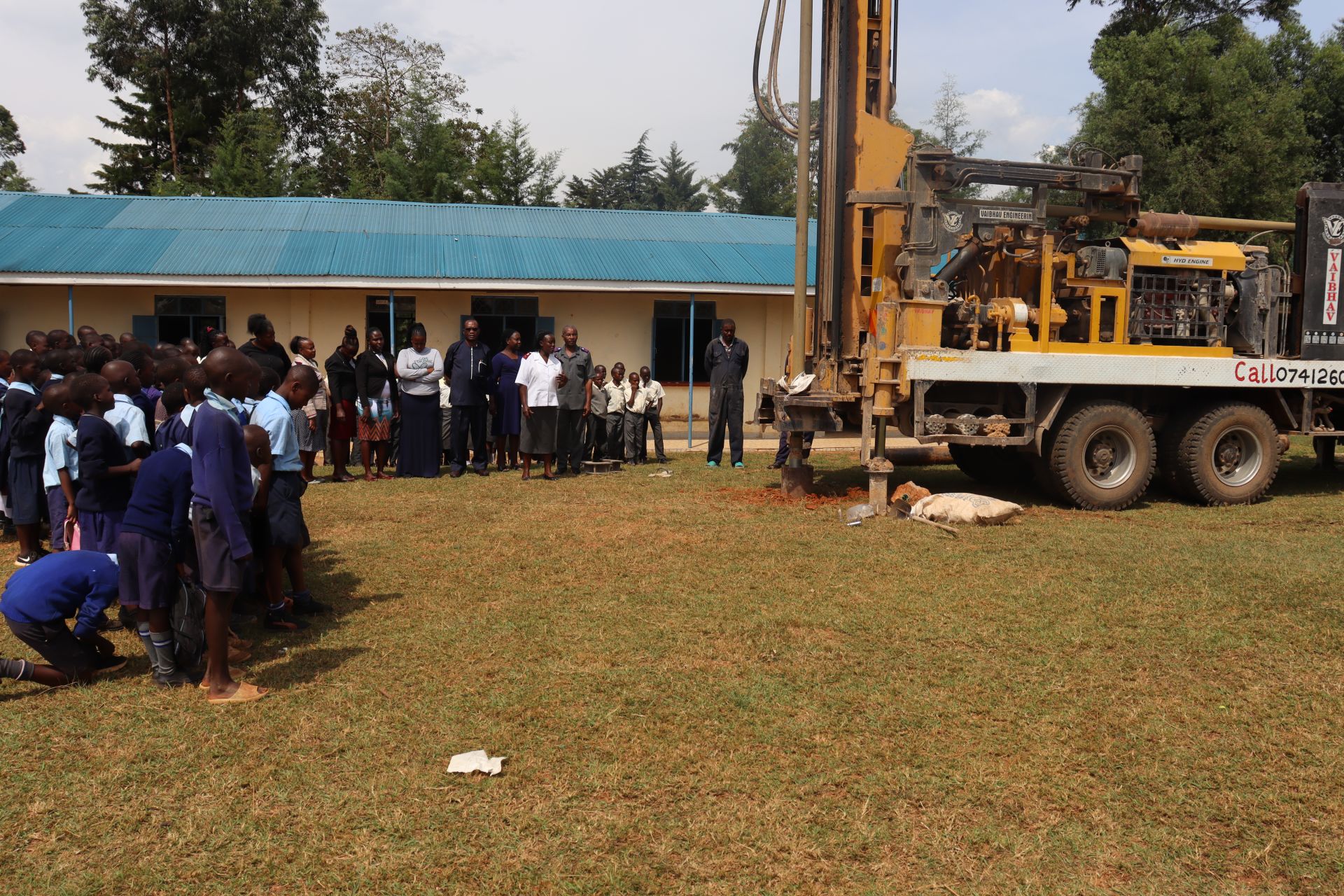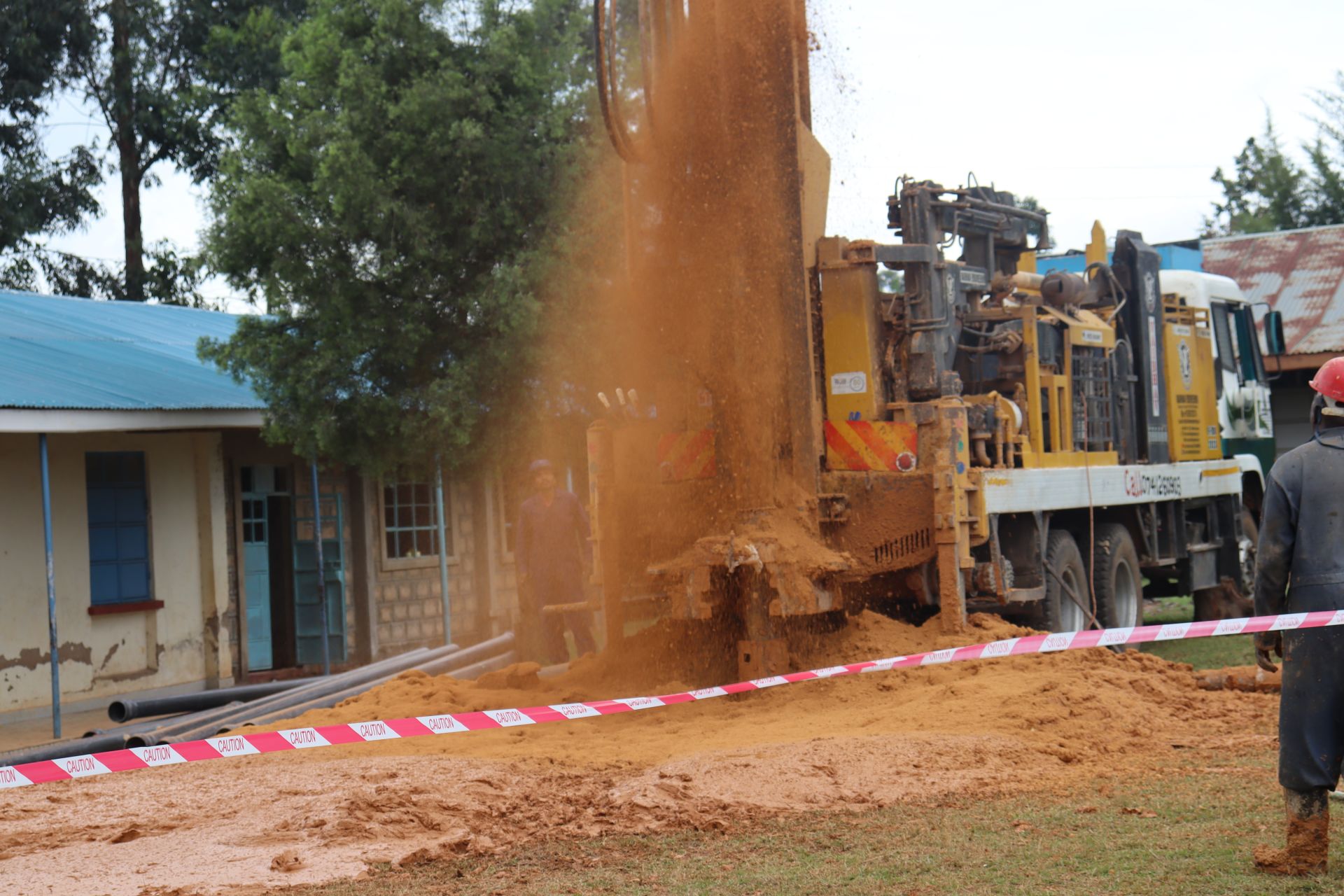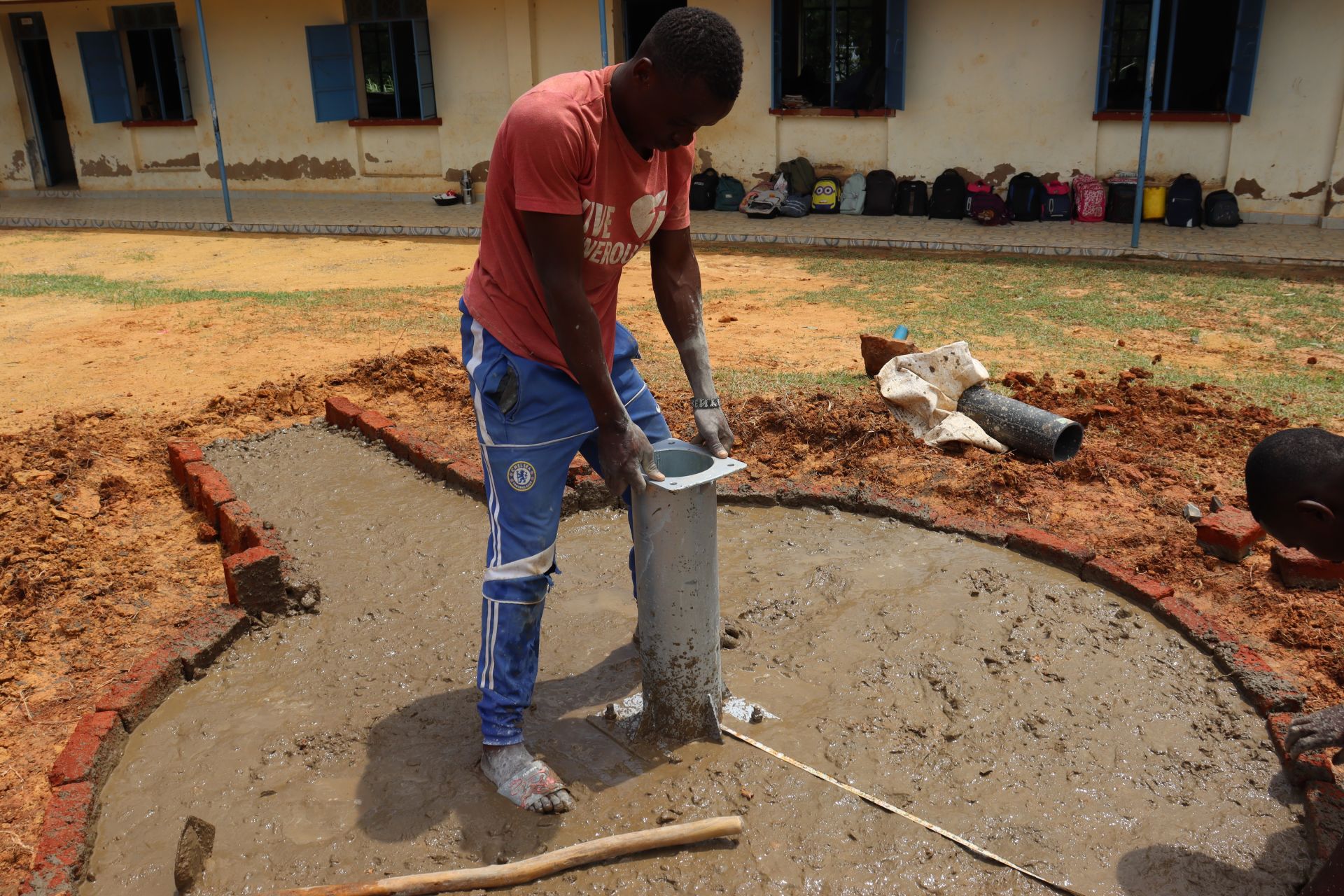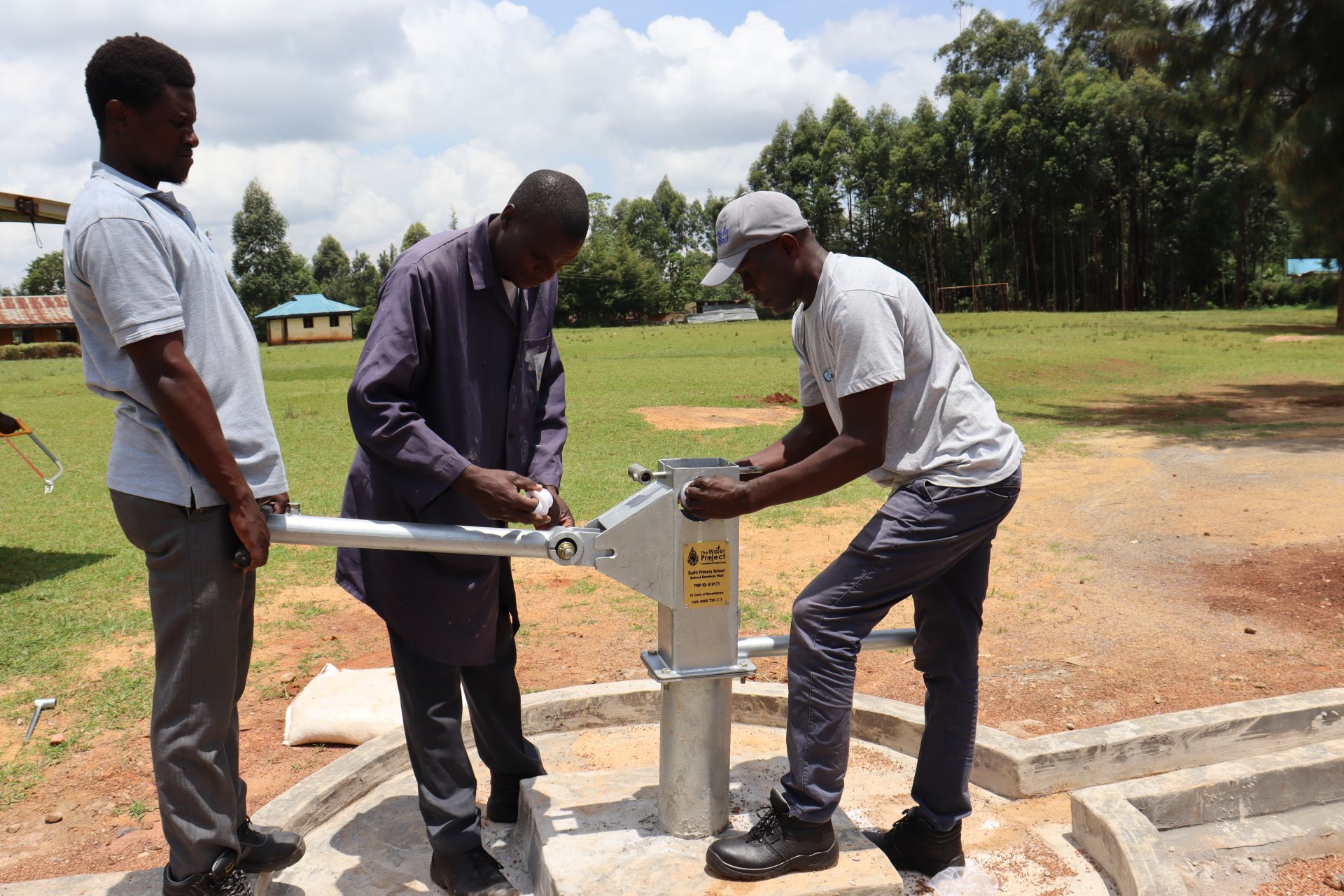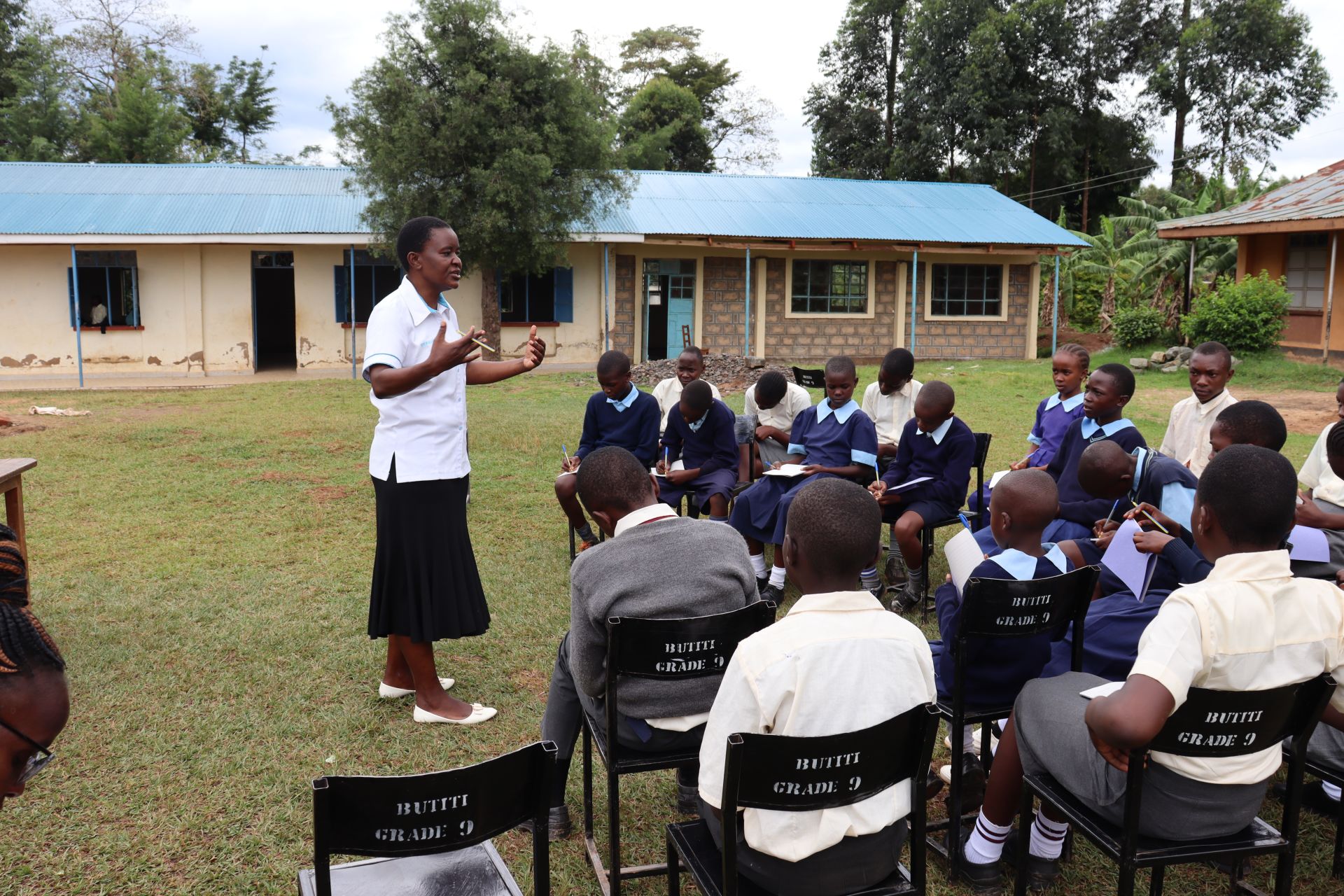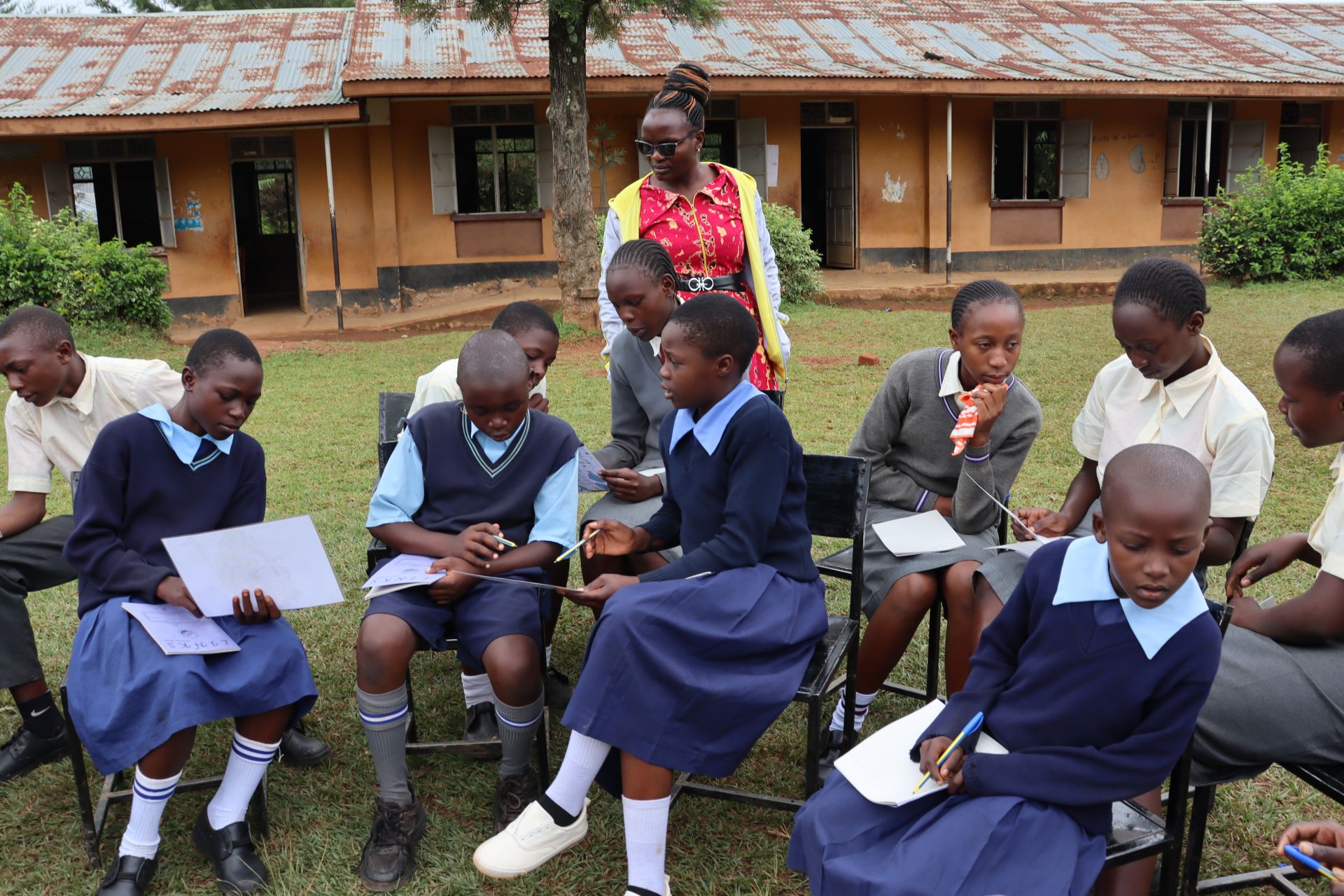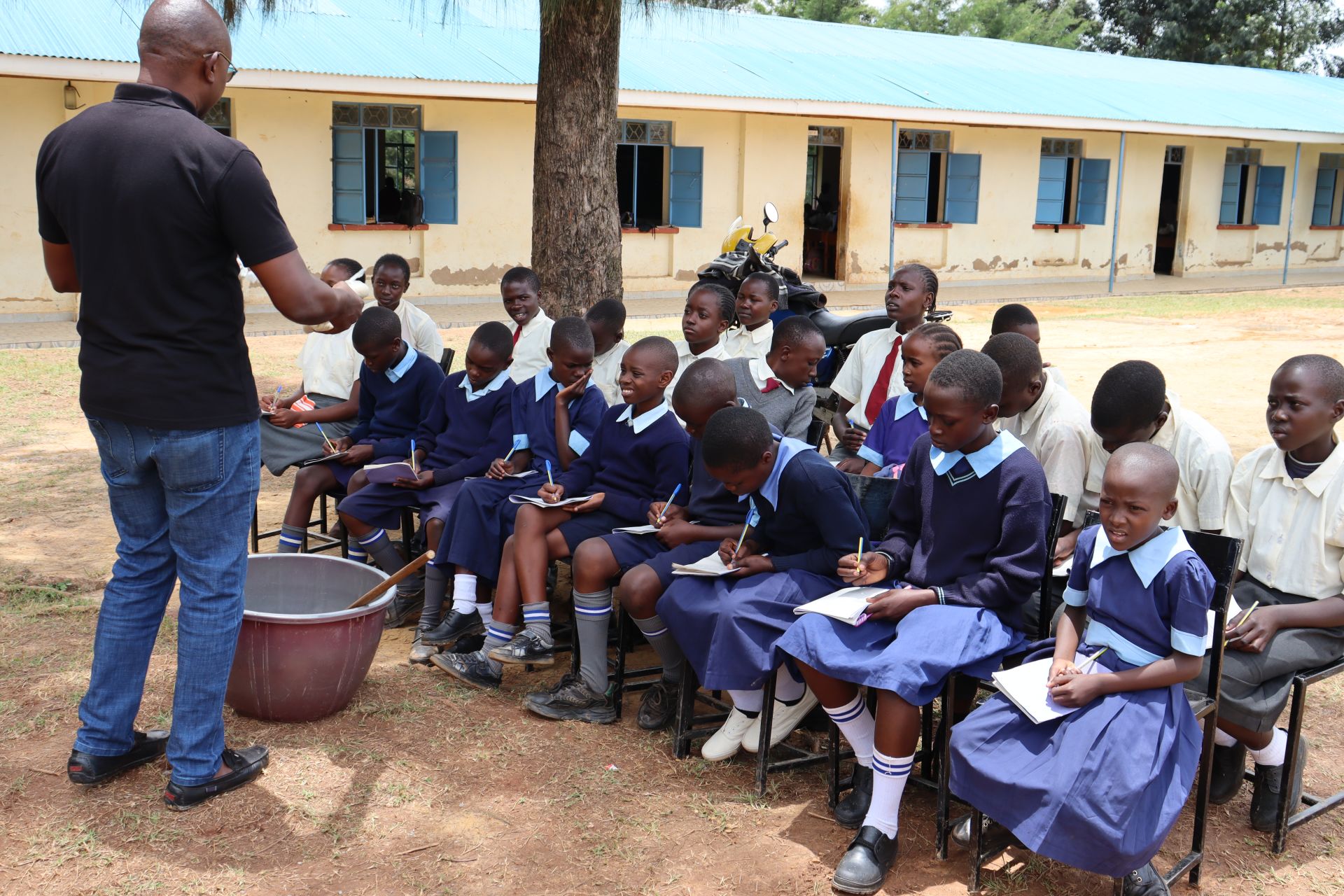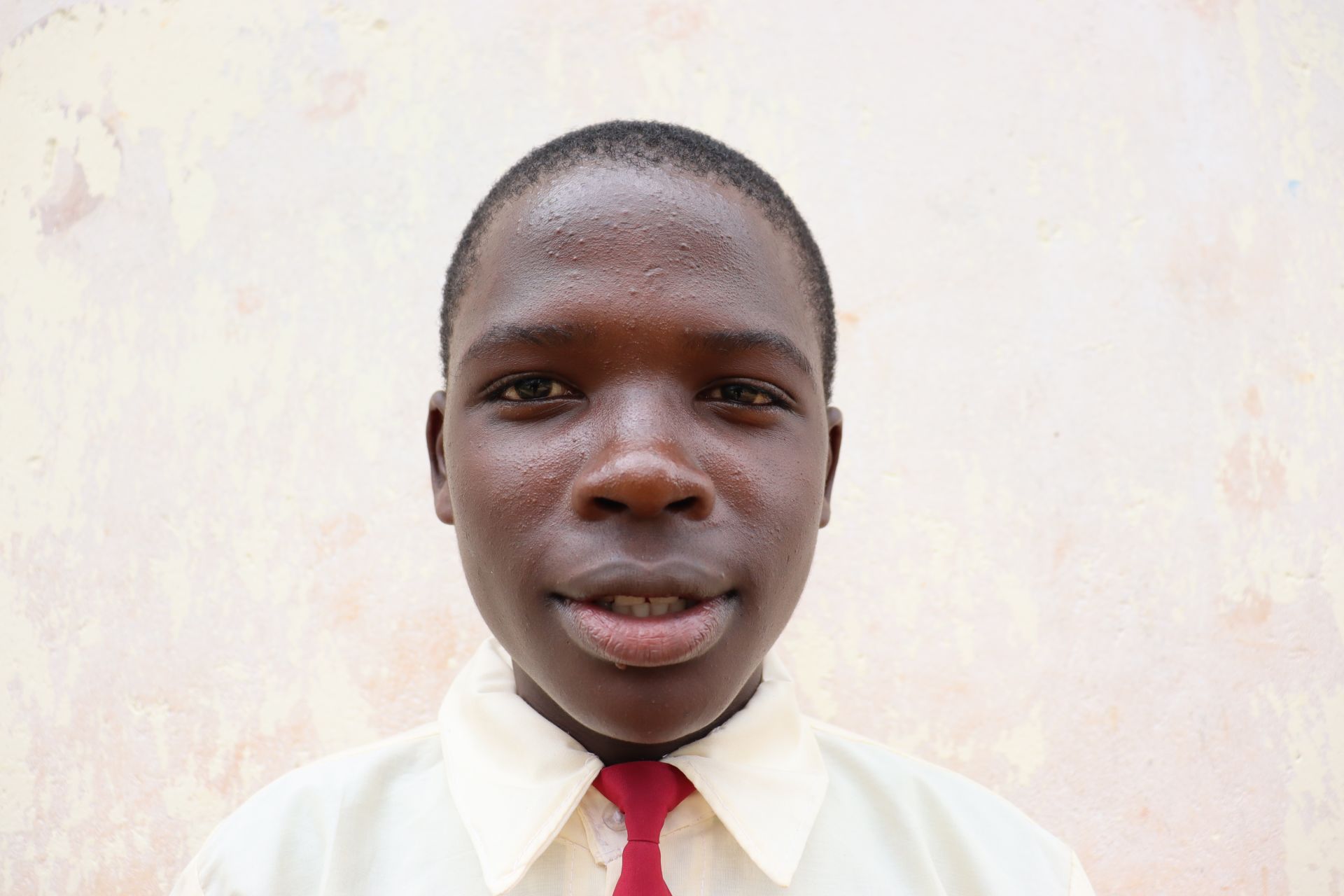The 372 students and 15 teachers at Butiti Primary School struggle to access clean, sufficient water every day. This water crisis creates a difficult environment for learning, impeding progress and hindering future opportunities.

Students in class.
They have a rainwater harvesting tank on campus, but it's too small to hold enough water to meet their needs. When that tank runs dry, students are forced to travel to a distant spring. Watching the students struggle is hard, but teachers like forty-five-year-old Josephene Jengo have no choice.

Ms. Josephene Jengo.
"The students are negatively impacted by lacking water at school. Lack of water mostly affects the hygiene of the students. With the Competency-Based Curriculum, they need a lot of water in activities like modeling, making nursery beds, and kitchen gardens. Currently, they are forced to survive with the little water they have," shared Ms. Jengo.
The journey to the spring is arduous and uphill. Once they arrive, they often encounter contentious community members who make them feel unsafe.

Making the trek for water.
"I am concerned about safety at our current water source because the water source is located far away from [the] school compound, and during that time, anything bad can happen to the learners," Ms. Jengo continued.
"My students have experienced harassment while waiting for water. Adults whom they find at the water source prevent them from fetching water faster by pushing them behind. This made me feel embarrassed and angry," she continued.
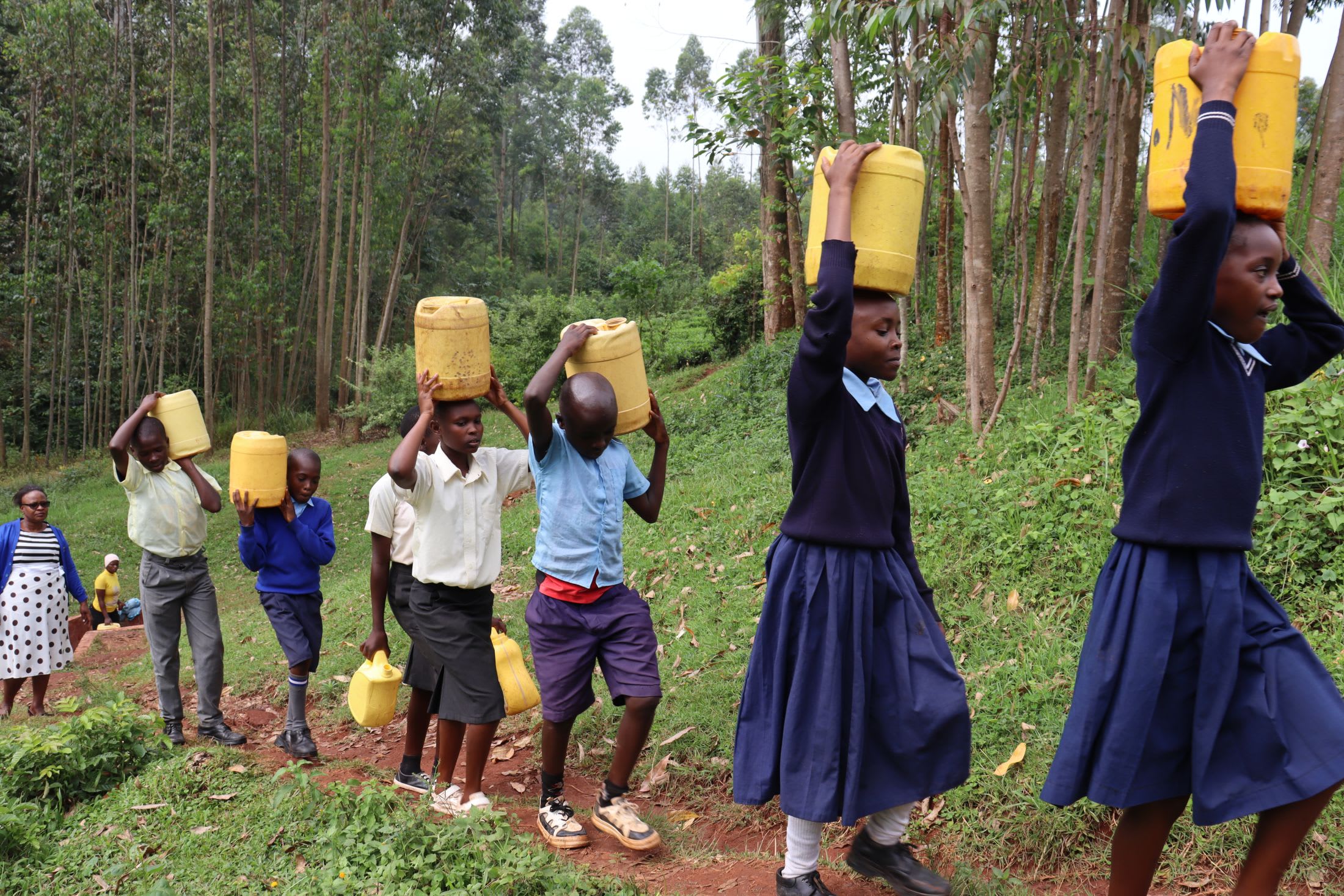
As you can imagine, the whole experience is incredibly discouraging to students and teachers alike. Precious learning time is stolen every day, and often, students don't bother to go back to school when they are sent to collect water because it's just too hard.

Teacher Jengo working in her classroom.
However, a new well on campus would change the norm for the Butiti Primary School. Creating a sustainable and reliable water source that is easy to access will make getting a well-rounded education possible for the students. Ms. Jengo will no longer have to worry about her students' safety while collecting water, and everyone can reclaim the time they currently spend on water collection.
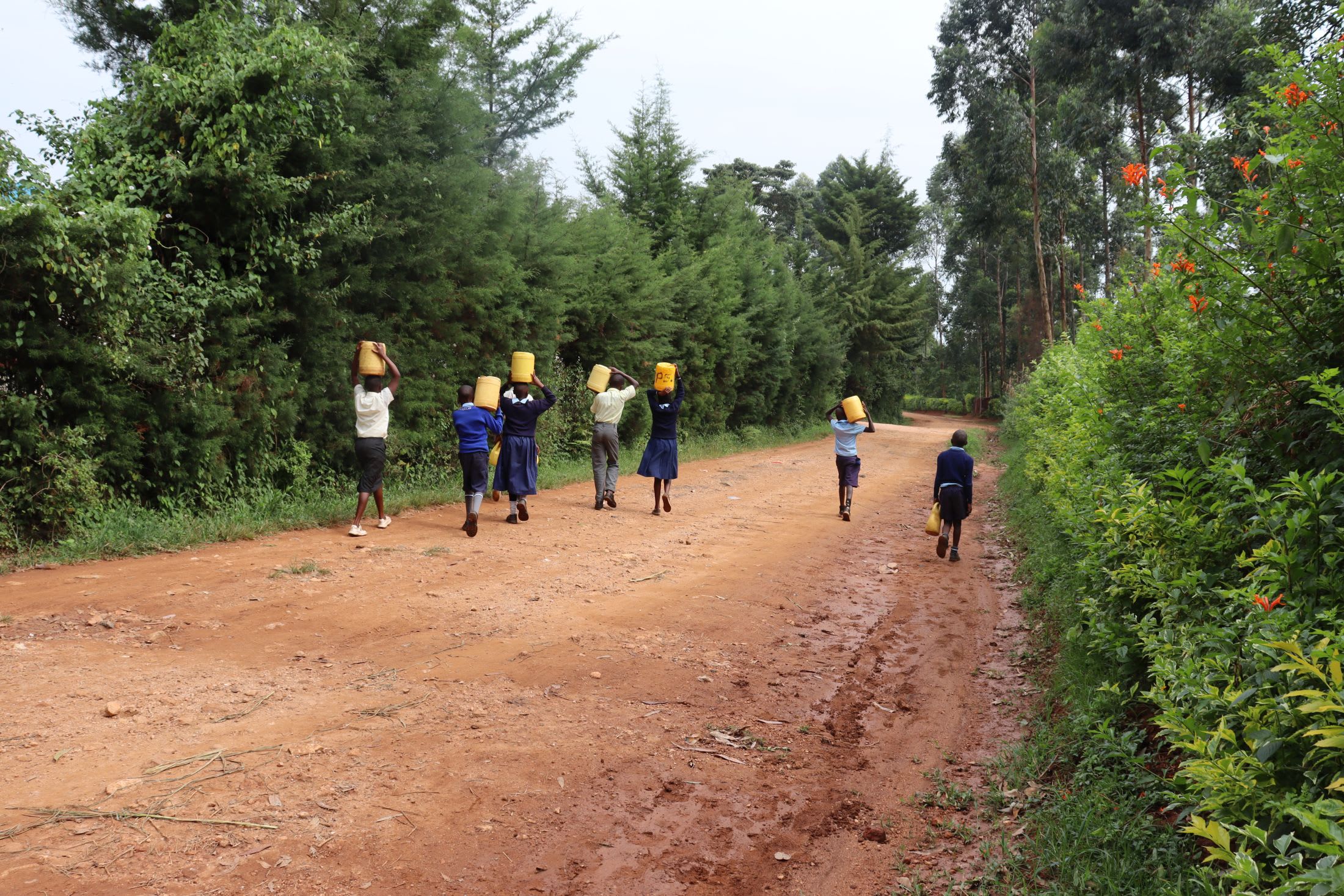
"A new waterpoint will eradicate the exposure to strangers and accidents on the road because water will always be available at school," concluded Ms. Jengo.
Steps Toward a Solution
Our technical experts worked with the local community to identify the most effective solution to their water crisis. They decided to drill a borehole well, construct a platform for the well, and attach a hand pump.
Well
Abundant water often lies just beneath our feet. Aquifers—natural underground rivers—flow through layers of sediment and rock, offering a constant supply of safe water. A borehole well is drilled deep into the earth to access this naturally filtered and protected water. We penetrate meters, sometimes even hundreds of meters, of soil, silt, rock, and more to reach the water underground. Once found, we construct a platform for the well and attach a hand pump. The community gains a safe, enclosed water source capable of providing approximately five gallons of water per minute. Learn more here!
Handwashing Stations
Alongside each water source, we install two gravity-fed handwashing stations, enabling everyone at the school to wash their hands. Handwashing is crucial for preventing water-related illnesses within the school and community. Student “health clubs” maintain the stations, fill them with water, and supply them with soap, which we often teach them how to make.
Latrines
We will construct two Ventilated Improved Pit (VIP) latrine blocks designed to prevent fecal disease transmission. Each latrine features a cement floor, making it easy to use and clean regularly. Three stalls will serve the girls, and three will serve the boys.
School Education & Ownership
Hygiene and sanitation training are integral to our water projects. Training is tailored to each school's specific needs and includes key topics such as proper water handling, improved hygiene practices, disease transmission prevention, and care of the new water point.
To ensure a lasting impact, we support forming a student health club composed of elected student representatives and a teacher. These clubs promote hygiene practices schoolwide and keep handwashing stations well-stocked. This student-led model encourages a sense of ownership and responsibility.
Safe water and improved hygiene habits foster a healthier future for everyone in the school and the surrounding community.

 Borehole Well and Hand Pump
Borehole Well and Hand Pump
 Rehabilitation Project
Rehabilitation Project












